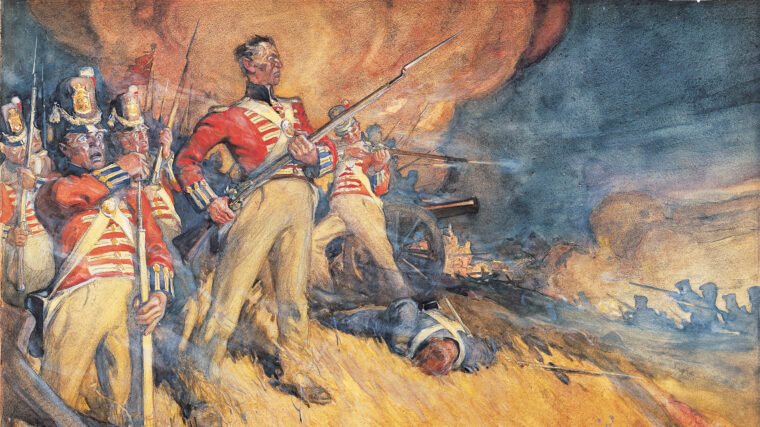
Canada
The War of 1812: Slugfest at the Battle of Lundy’s Lane
by Mike PhiferIn the cover of darkness and fog, American troops quietly made their way down to the edge of the Niagara River. Read more

Canada
In the cover of darkness and fog, American troops quietly made their way down to the edge of the Niagara River. Read more
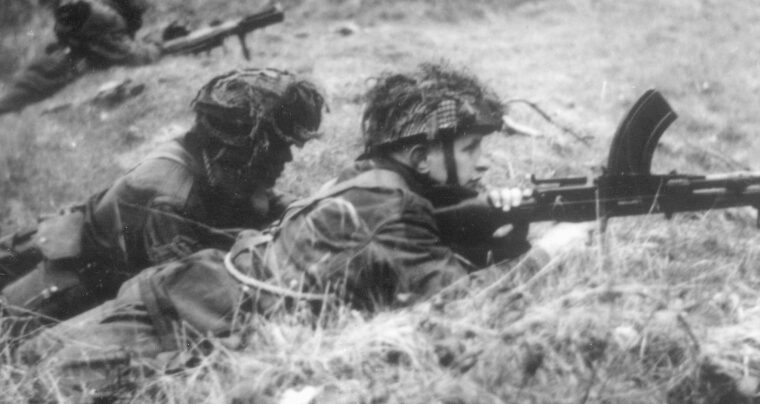
Canada
In the hut no one spoke, no one joked. The assembled British and Canadian paratroop commanders awaited the briefing from their brigade commander on their next major operation. Read more
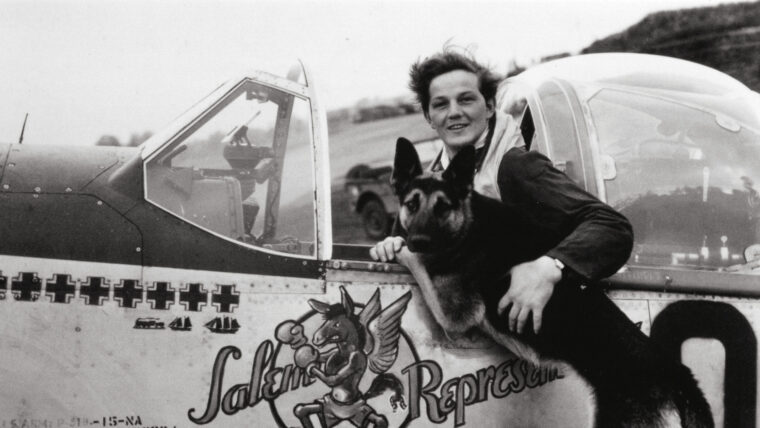
Canada
He could be described as reckless, impulsive, undisciplined, lucky, fearless, and also as one of the most successful fighter pilots in the history of the U.S. Read more

Canada
By February 1945, the green Allied formations that landed on D-Day had become hard professional armies. Army, corps, and division commands had been shaken down and were operating efficiently. Read more

Canada
Peering intently through a telescope, General Lemuel C. Shepherd, the commandant of the Marine Corps, scanned the shell-pocked Korean terrain in front of his position. Read more
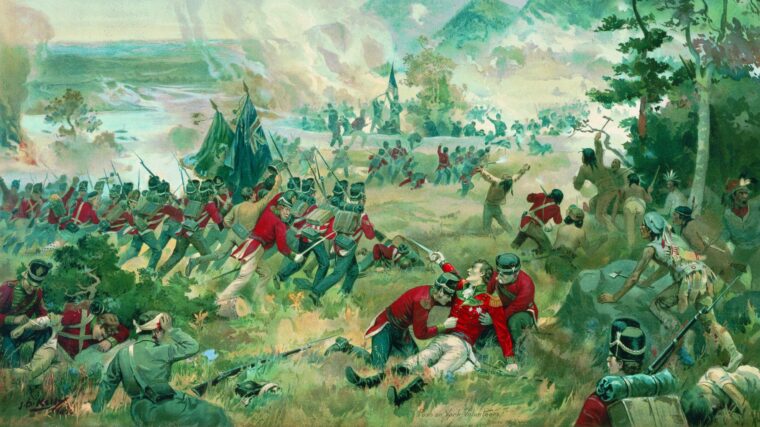
Canada
In June 1812, the United States, provoked by arrogant British actions on the high seas and its support of hostile Indians in the Northwest Territories, declared war on Great Britain and immediately began planning an invasion of British-held Canada. Read more
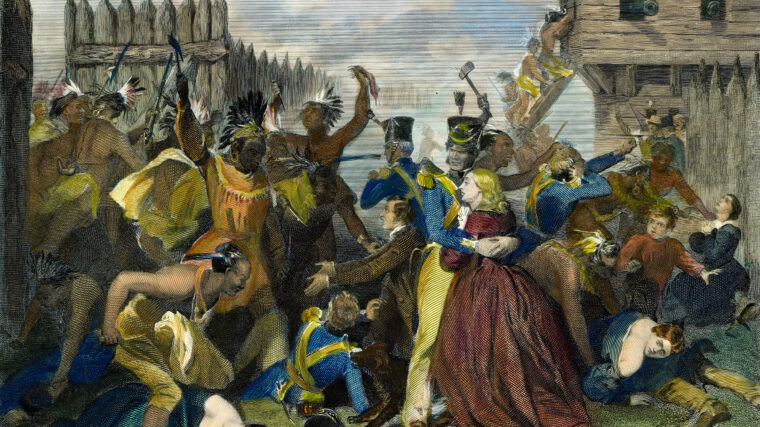
Canada
In the late summer of 1813, some 550 men, women, and children took refuge within a small wilderness outpost and waited for the worst. Read more
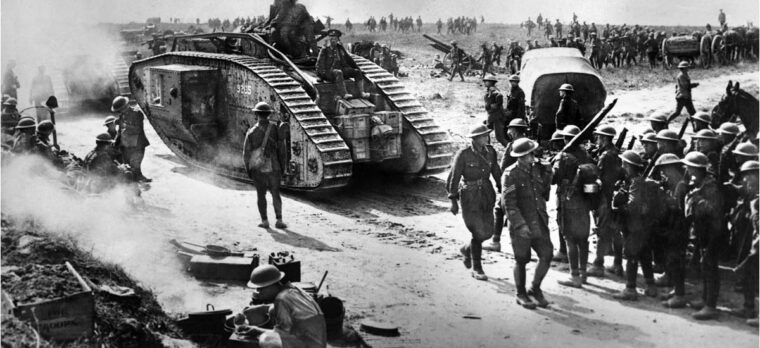
Canada
The drone of a Royal Air Force bomber could be heard overhead in the early morning of August 8, 1918, as it flew up and down the Allied line near Amiens, France. Read more
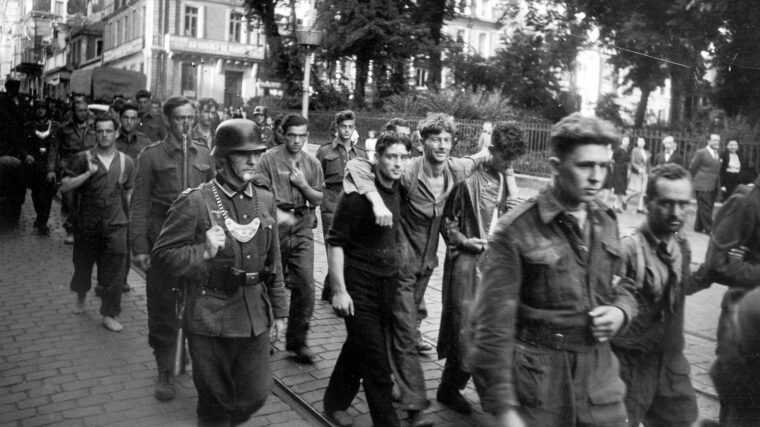
Canada
On the morning of August 19, 1942, the Canadian 2nd Division sailed across the English Channel and attacked the Nazi-held port of Dieppe, France. Read more
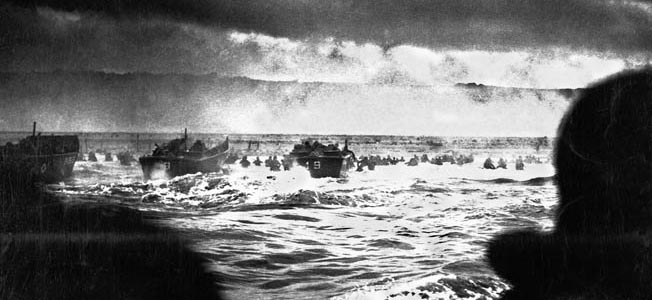
Canada
The largest amphibious invasion in history began on the night of June 5-6, with the roar of C-47 engines preparing to take off , and climaxed on the beaches of Normandy. Read more
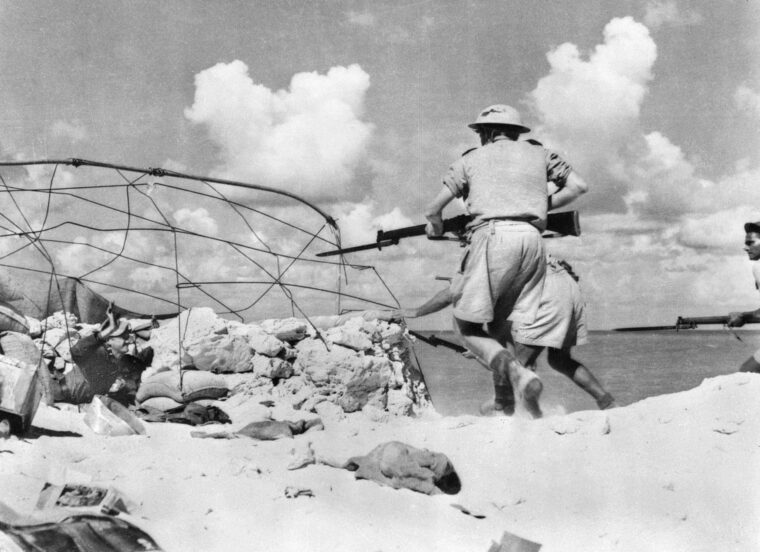
Canada
A small party of about 40 German soldiers had infiltrated the Australian lines around the besieged town of Tobruk, Libya, during the night of April 13, 1941. Read more
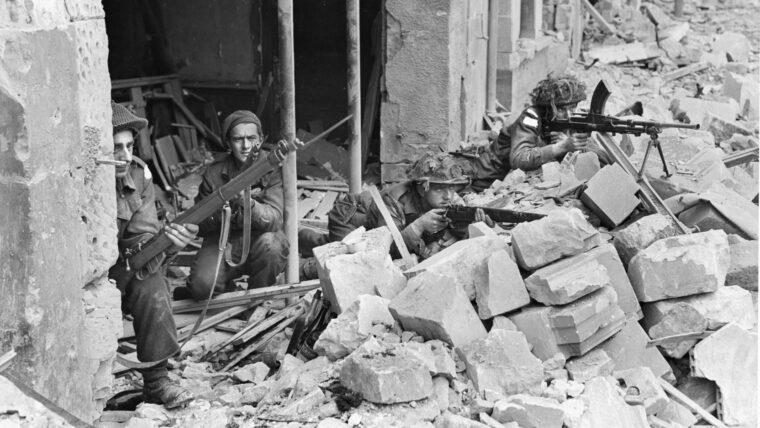
Canada
As John Wesley Pointon jumped into the cold English Channel water with the Royal Canadian 7th Brigade Signal Corps and struggled with a heavy radio strapped to his back toward the beach that was being torn apart by shot and shell, the farm boy from Saskatchewan tried to make his mind go blank. Read more
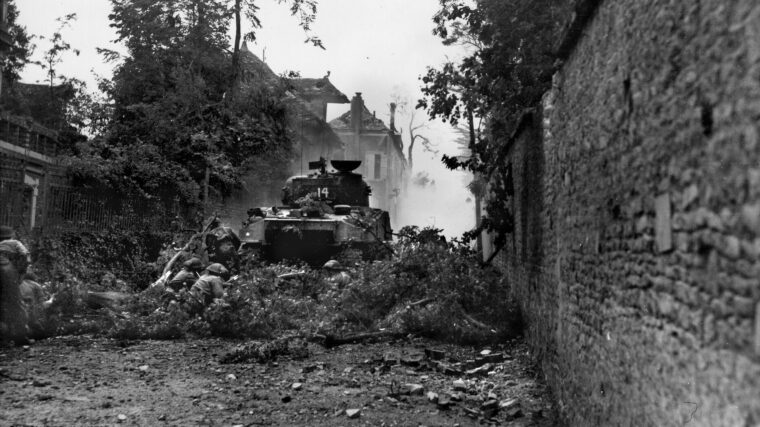
Canada
On June 7, 1944, D+1, two volunteer Canadian 3rd Division, 9th Infantry Brigade regiments, the North Nova Scotia Highlanders (the North Novas) and the 27th Canadian Armoured Regiment (the Sherbrooke Fusiliers)—together with volunteer units from the Camerons of Ottawa and Forward Observers from the 14th Field Regiment—fought an important but now generally forgotten battle in Normandy. Read more
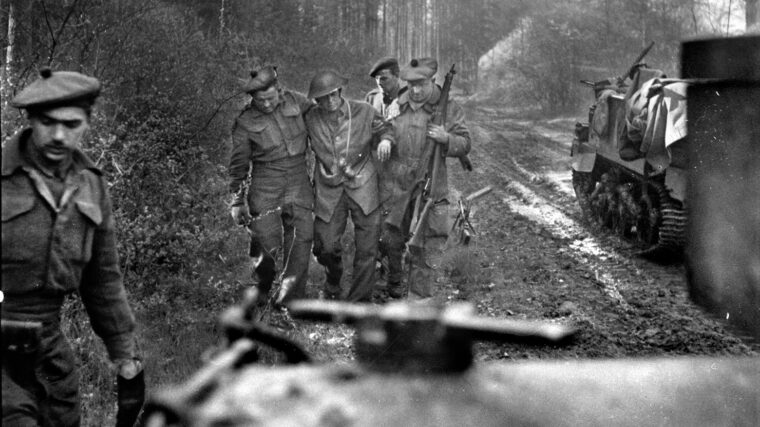
Canada
Norvald Flaaten never expected he would appear in a movie when he signed up with the Canadian Army during World War II, but the subject of the movie and what he had to do was too good to pass up. Read more
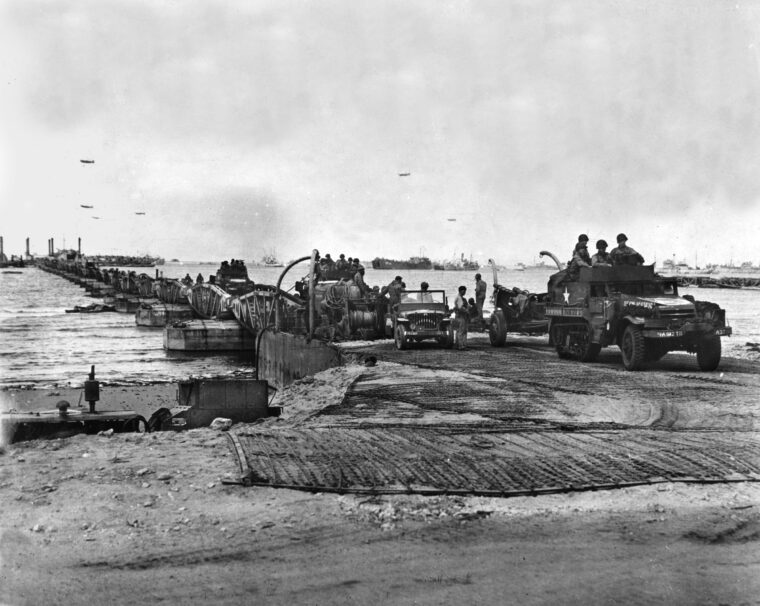
Canada
No Allied amphibious invasion in World War II left such a bitter legacy as Operation Jubilee, the ill-fated British-Canadian raid on the northern French port of Dieppe on Wednesday, August 19, 1942. Read more
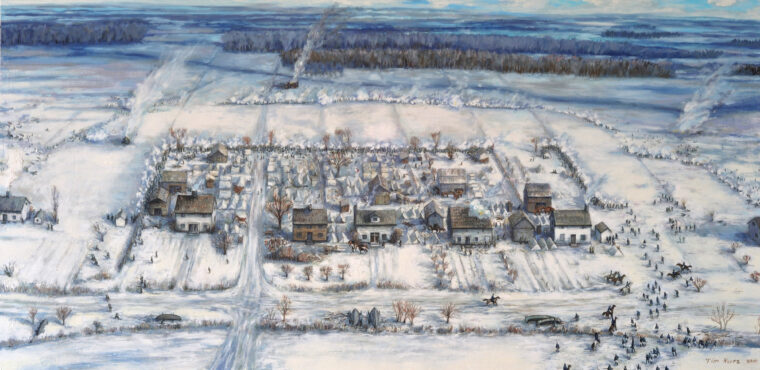
Canada
It had been eight years since Jane Logan Allen’s husband, Colonel John Allen, had departed with his regiment. Read more
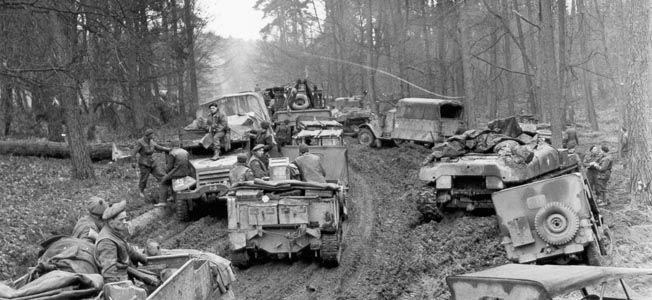
Canada
Aubrey Cosens was the first soldier of the Third Canadian Division to earn the Victoria Cross in World War II—and this was a division that had landed on D-Day, taken 76 percent casualties in Normandy, and used its amphibious warfare experience to defeat the Germans in Holland. Read more
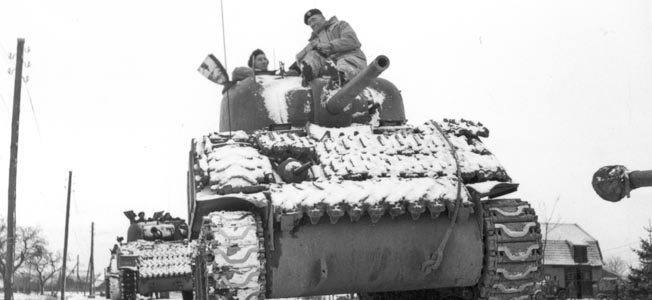
Canada
Ben Dunkelman was born in 1913 in Toronto to a wealthy Jewish family. His father owned Tip Top Tailors, Canada’s largest manufacturer and seller of men’s clothing. Read more
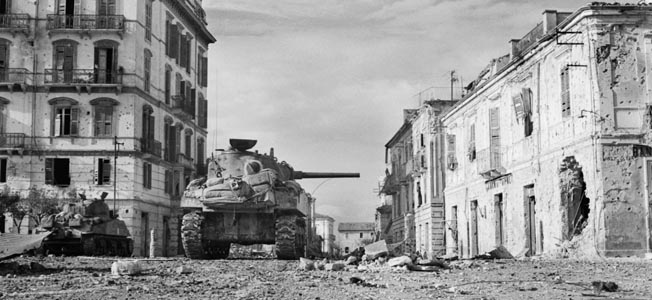
Canada
By the autumn of 1943, the Allied armies fighting in Italy had discovered that Winston Churchill’s description of Italy as the “soft underbelly of Europe” had been a falsehood of monumental proportions. Read more
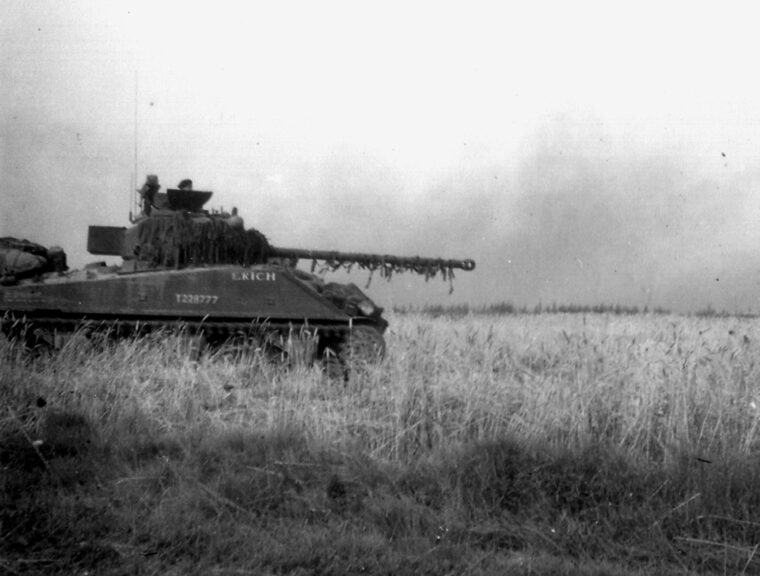
Canada
For the Allied tankers and infantrymen of the American, British, Canadian, and Free French armies battling German Panther and Tiger tanks in Normandy in the summer of 1944, the Sherman tank’s failures were glaringly evident as their own shells bounced off the hulls of the Nazi armor and they were themselves destroyed at a far greater range by the powerful German tanks. Read more